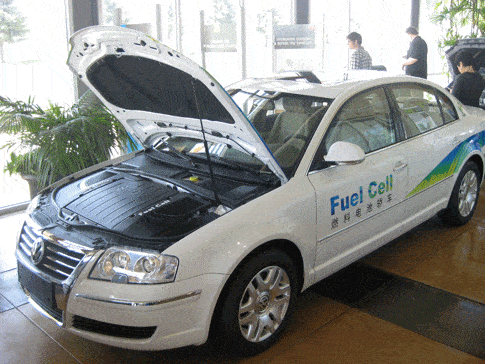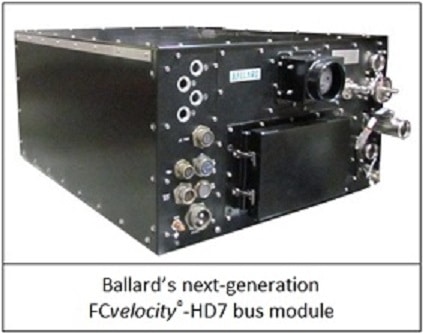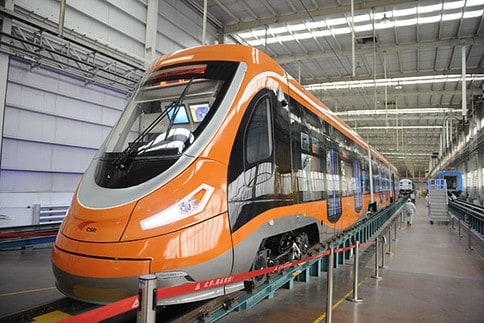

For some, yesterday’s news from Ballard Power (TSX:BLD) may have had a nostalgic tinge to it.
The Vancouver-based cleantech announced it had signed an agreement with Volkswagen to develop fuel cells in demonstration vehicles. The contract, says Ballard, is valued at between $60-million to $100-million.
Turns out Ballard Power, which had turned its attention to providing fuel cell power to things like forklifts, telecommunications backup applications, or fuel cell power generation systems to back up the wonky Indonesian power grid, wasn’t out of the car business at all.
CEO John Sheridan explained the reason for the company’s silence in the auto space.
“The announcement of this research agreement with Volkswagen Group, a recognized global leader, is a major step for Ballard both strategically and financially,” he said. “It represents a tremendous ramp-up in our engineering services business following the recent expiration of the five-year automotive non-compete agreement. Ballard’s focus with Volkswagen in this new automotive fuel-cell research program will parallel our continuing work in commercial fuel-cell markets for backup power and material handling — enhancing product durability and performance, while radically reducing product costs.”
Ballard Power soared to attention in the nineties when it was believed that hydrogen fuel cells were the green automotive solution of the future. In 1993, the same year that Ballard IPO’d at $6 a share, the company demonstrated the world’s first zero-emission, fuel-cell bus.
The promise of the Ballard’’s technology seemed both limitless and inevitable, and it was reflected in the company’s share price. By 1997, its stock had soared to $82, as the company received investments from DaimlerChrysler and Ford. Every major car company was developing fuel cell vehicles, from Honda’s FCX to GM’s Sequel.
The inability of fuel cell developers to reduce costs, however, coupled with advances in battery technology began to sway momentum to electric vehicles. By 2005, shares of Ballard had fallen south of $4 and in 2007, it got out of the automotive market altogether
But fuel cells may be back in vogue. In January, Ford, Renault-Nissan and Daimler, with the help of Ballard, announced they had agreed to jointly develop a fuel cell system to try to and advance the availability of zero-emission vehicles. According to group vice president of global product development at Ford, Raj Nair, the cost of fuel cell production has come down. The group expects to launch “the world’s first affordable, mass-market fuel cell car” by 2017.
At press time, shares of Ballard Power were down 10.4% to $1.21.
_____________________
Comment
One thought on “Ballard Power goes back to the future with VW fuel cell deal”
Leave a Reply
You must be logged in to post a comment.





 Share
Share Tweet
Tweet Share
Share




ballard is the stock to buy